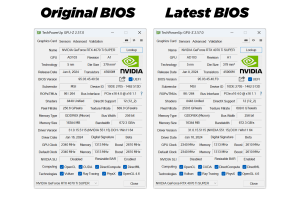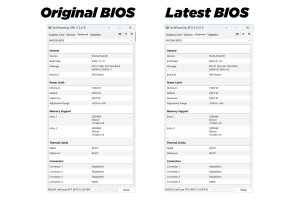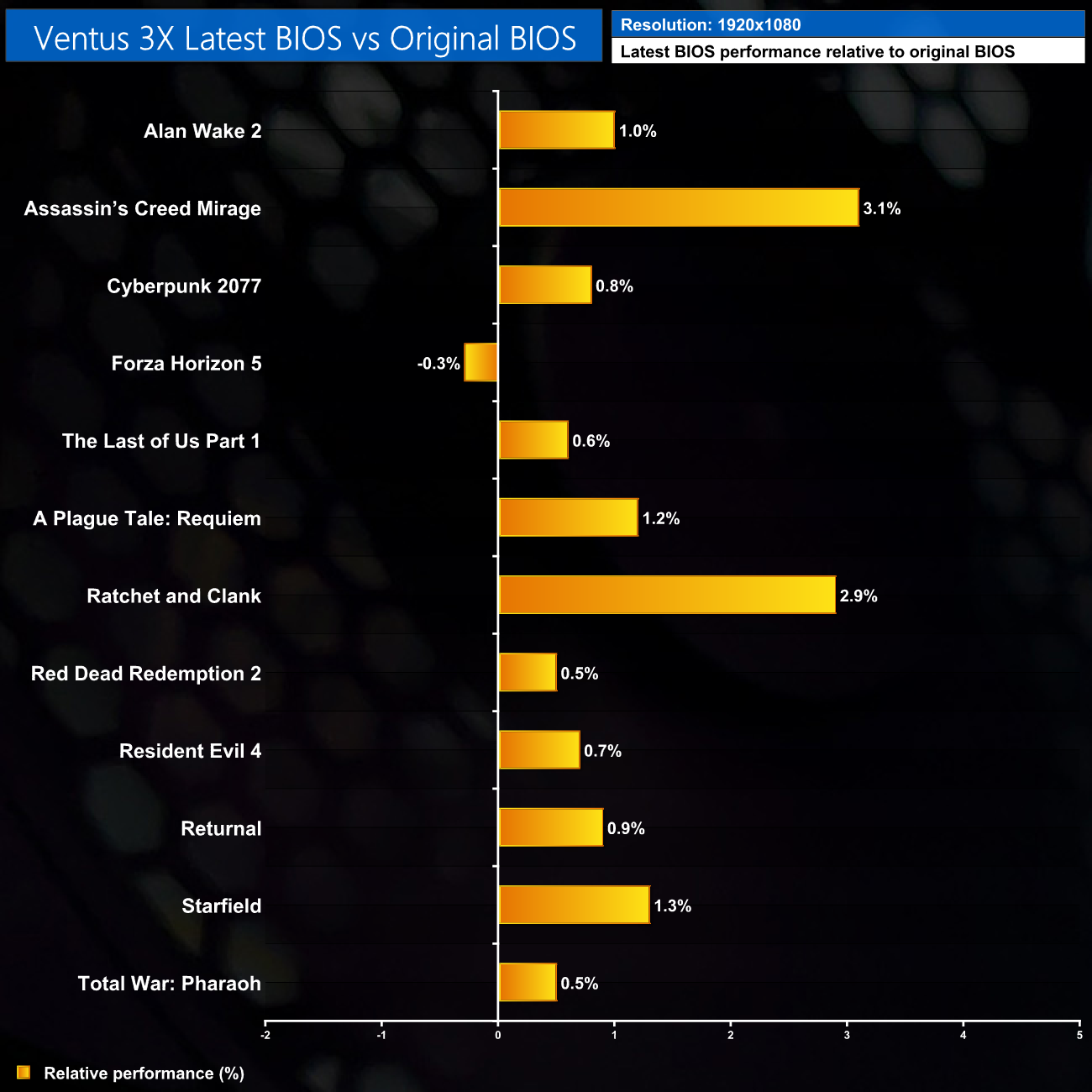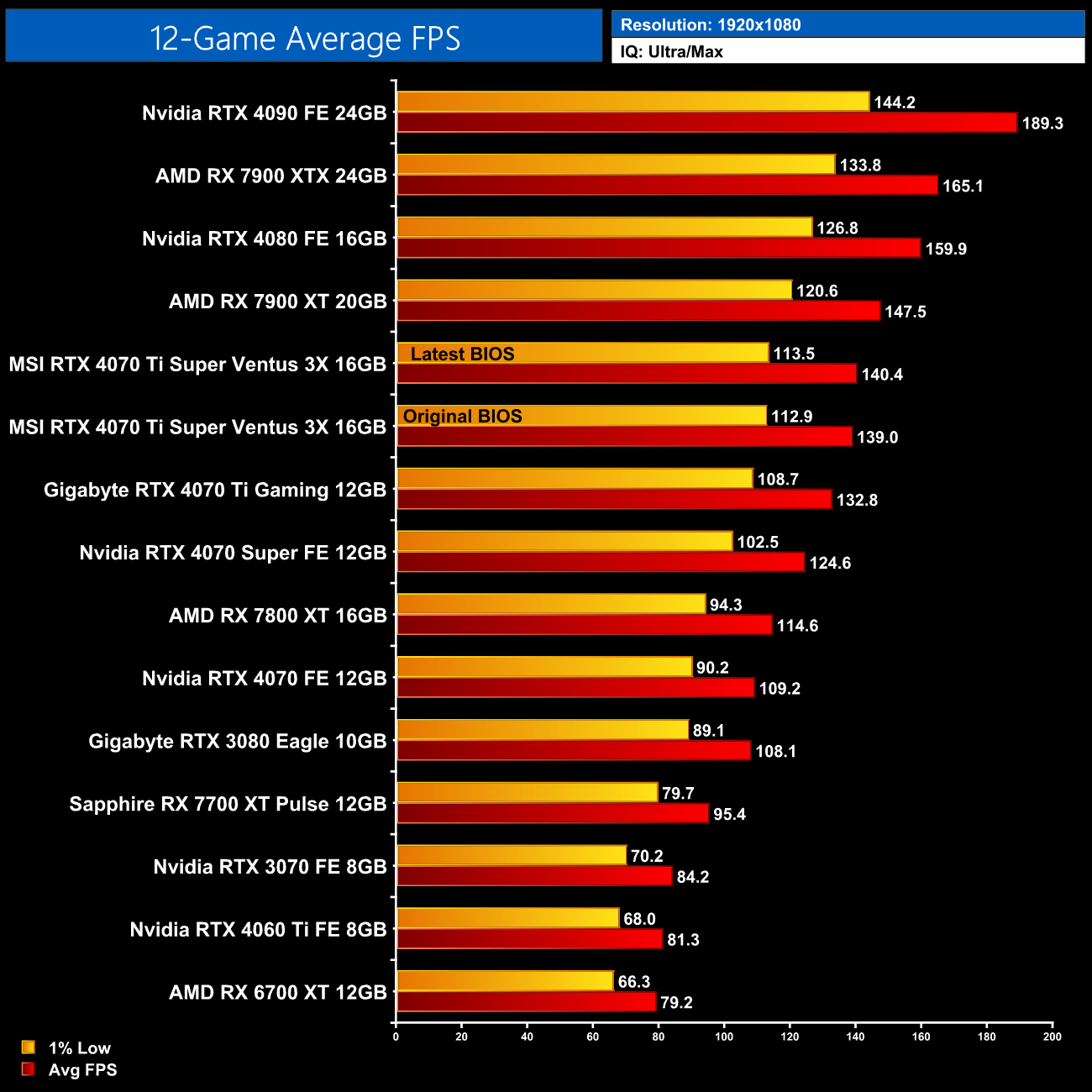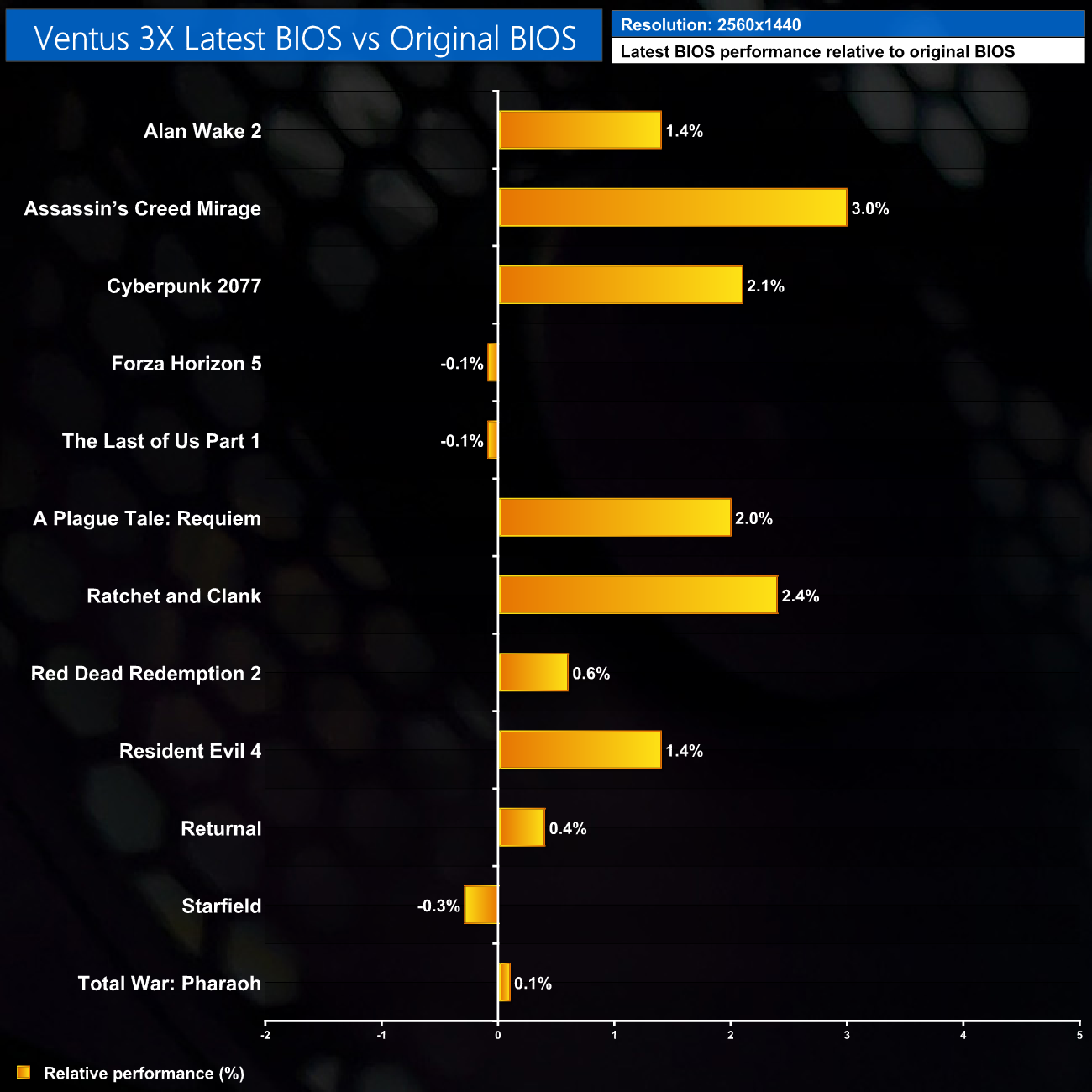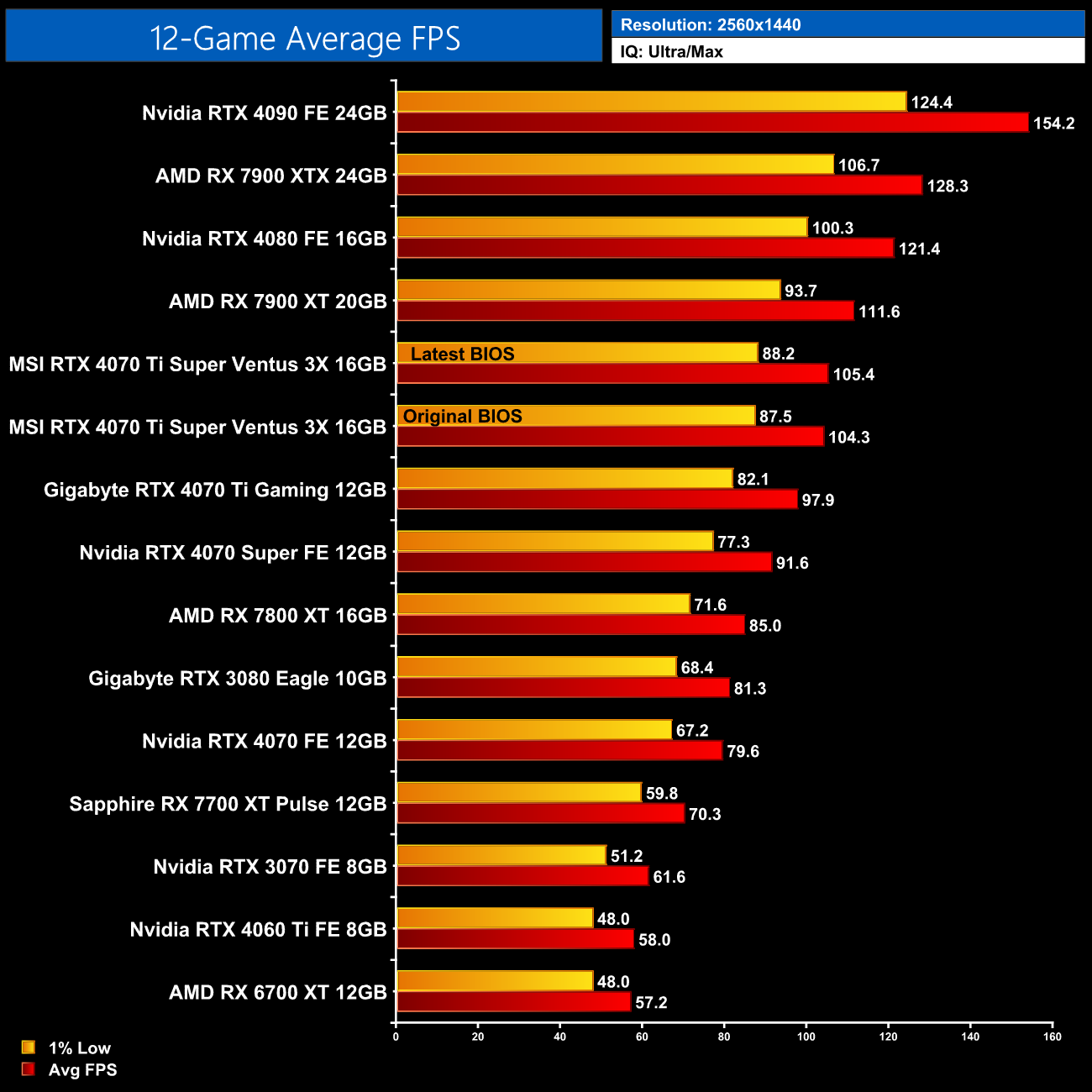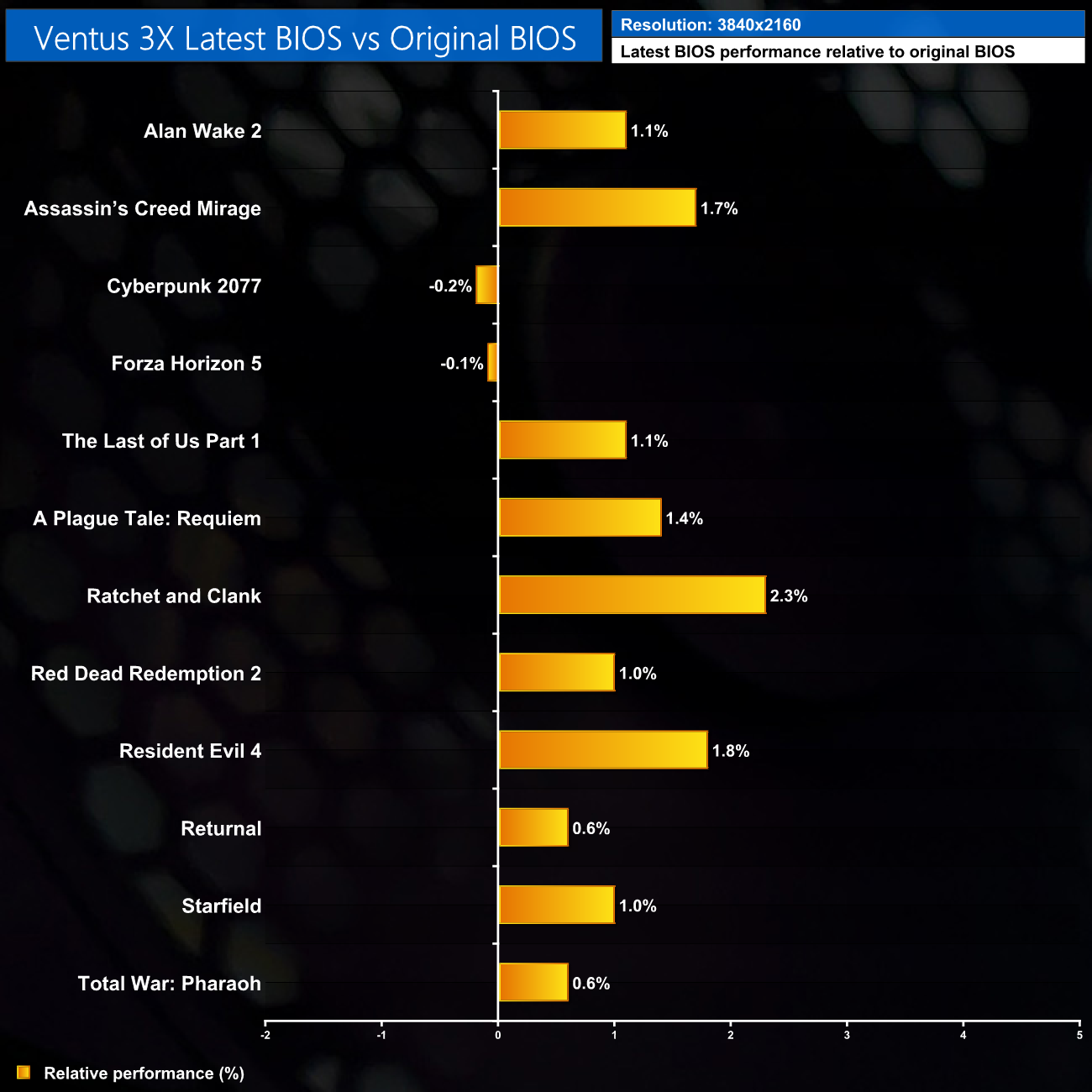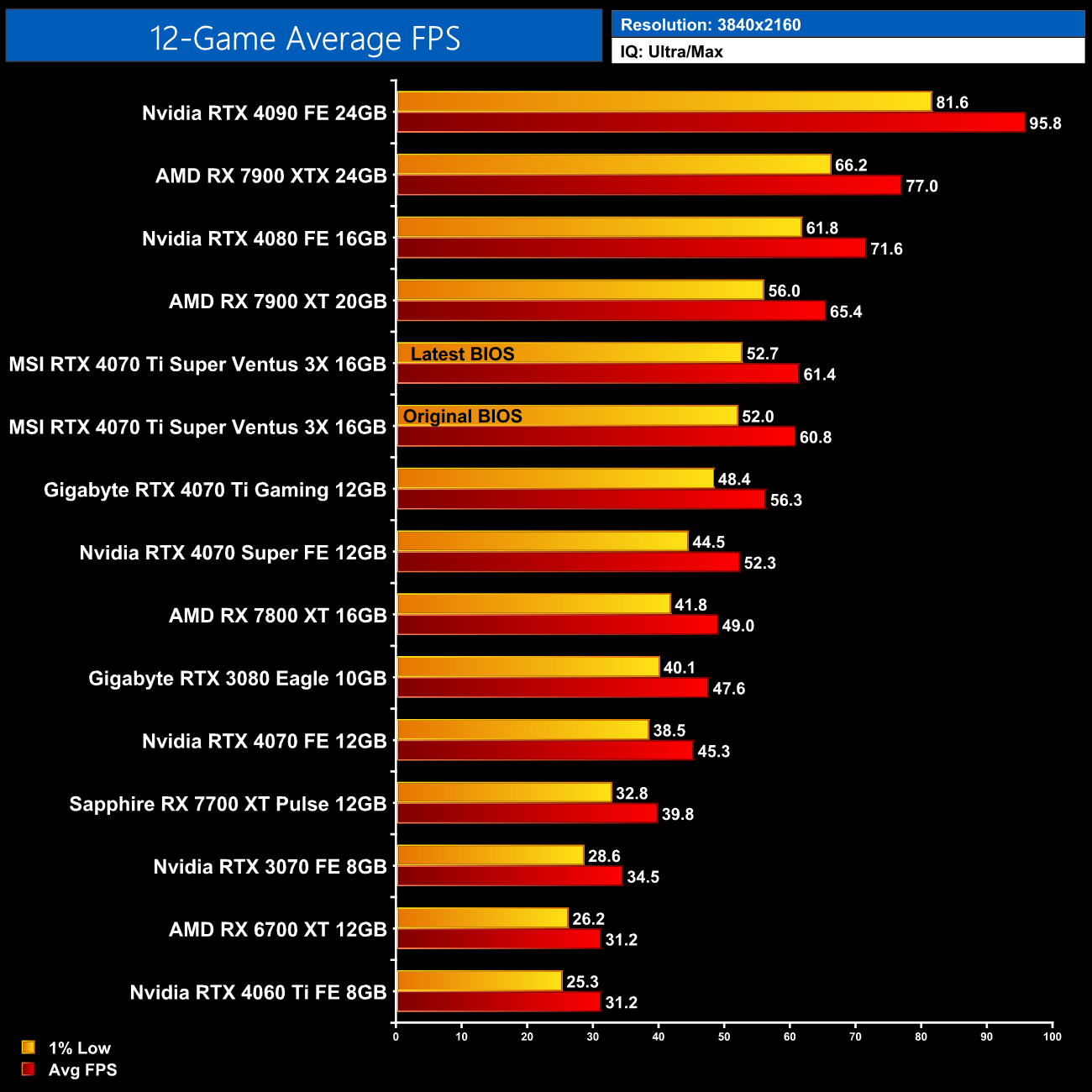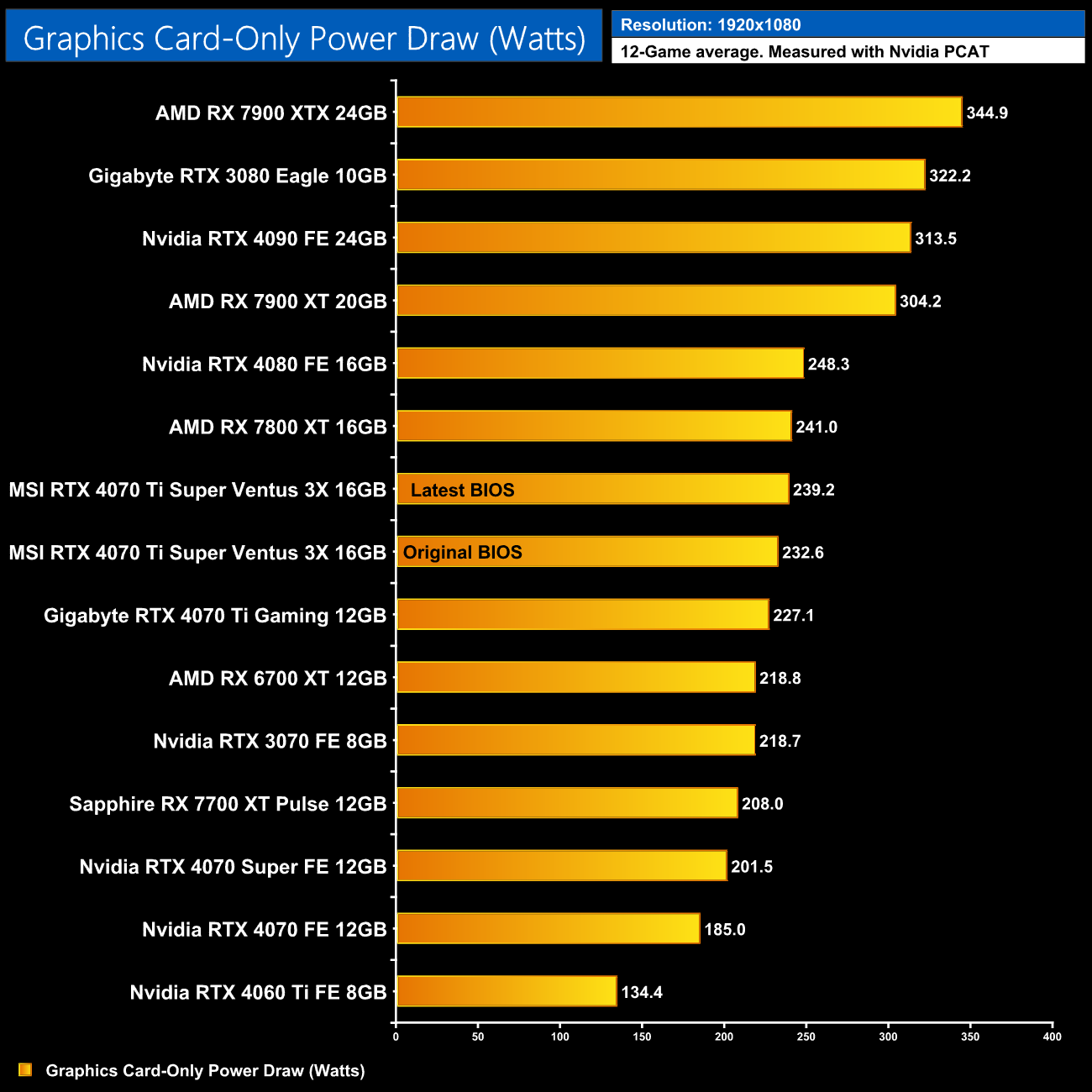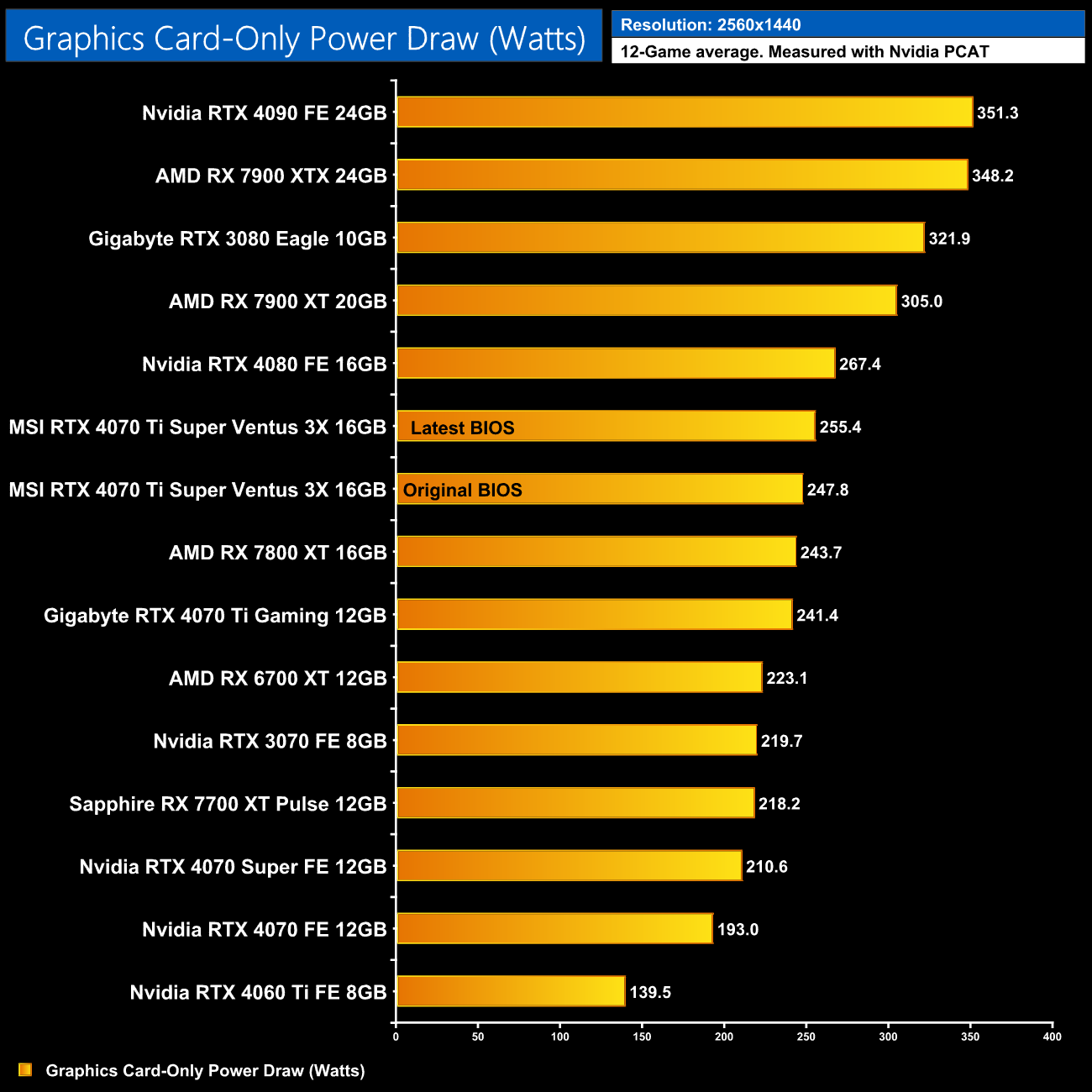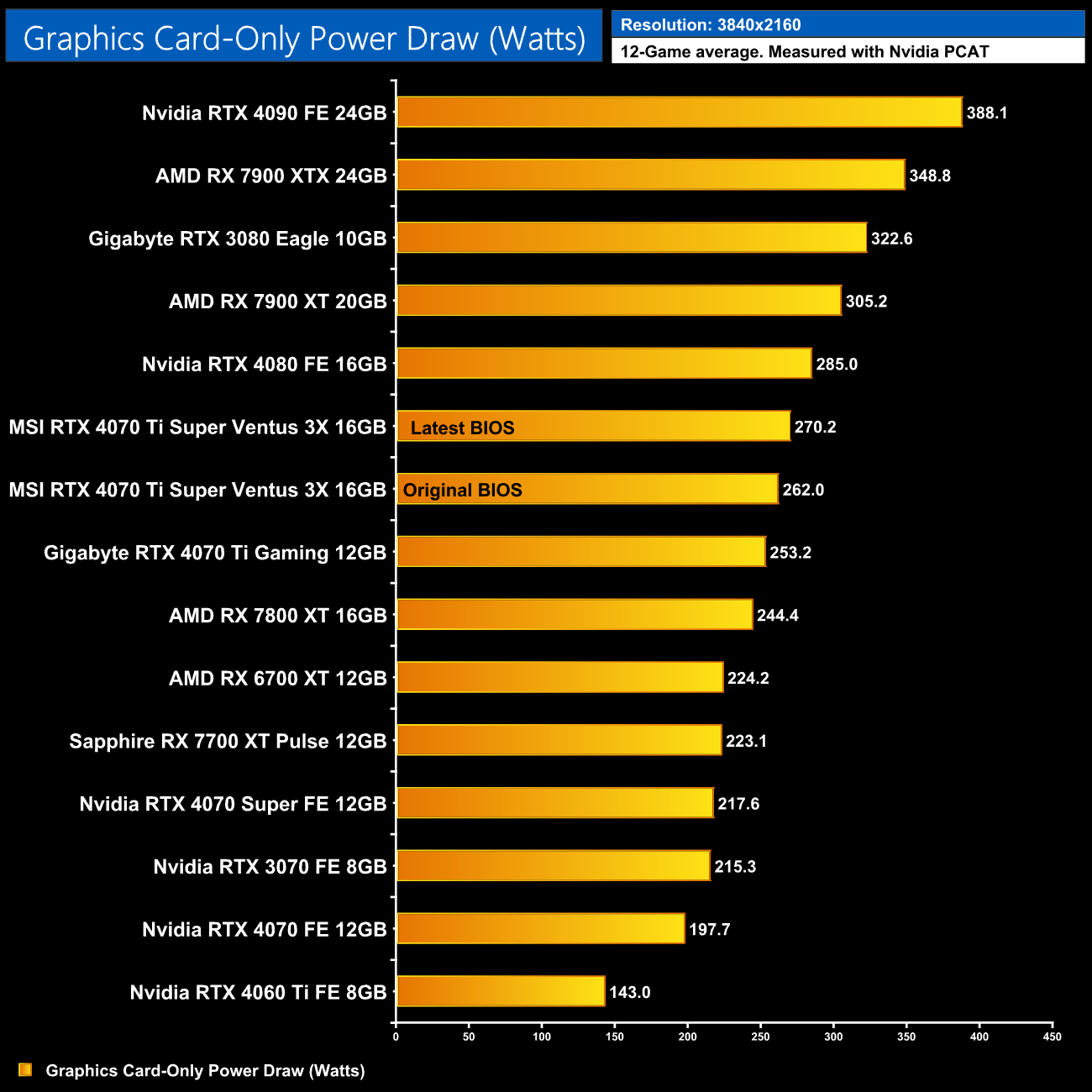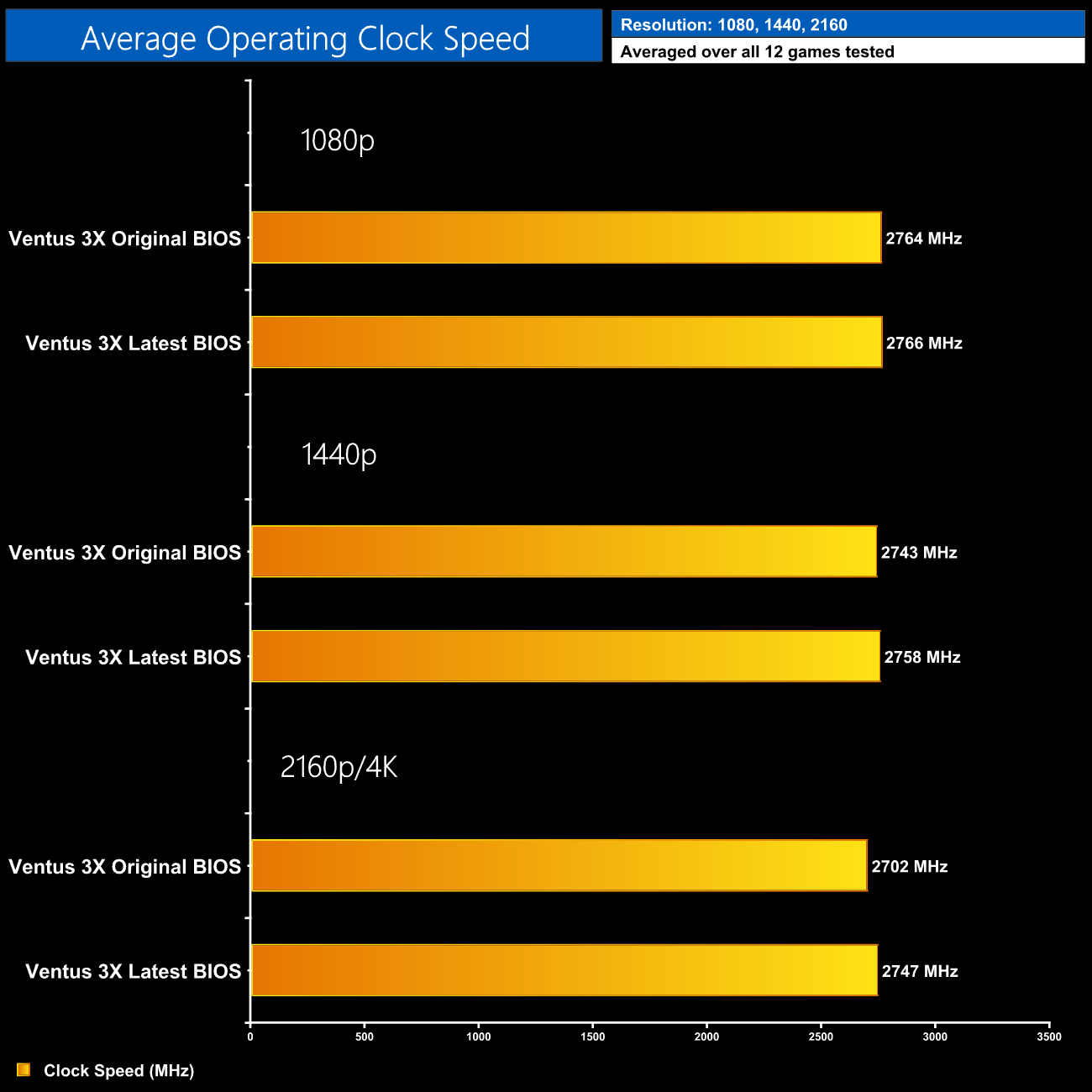If you were following the launch of Nvidia's RTX 4070 Ti Super graphics card this week, you will likely have seen something about the MSI Ventus 3X and reports of a sub-par BIOS. This was a model widely sampled to press, but one that Nvidia themselves suggested was performing 5% below expectations. Not one, but two new BIOS revisions were sent to press during the review period, and today we've tested the latest version to see how much difference it really makes.
For a basic timeline – and this is something we covered in our day 1 review of the RTX 4070 Ti Super – we were sent the MSI RTX 4070 Ti Super Ventus 3X directly by Nvidia as there is no Founders Edition model. The card arrived with me on Tuesday 16th January, and I started testing on Friday 19th. On Sunday 21st at 20:10 GMT, less than two days before launch, we received the first email from Nvidia which said performance of the Ventus 3X was ‘approximately 5% below expected figures on other RTX 4070 Ti SUPER SKUs'. A BIOS update was also attached to the email, version 95.03.45.40.DC, which I did some initial testing on as part of my review, but didn't find it made any real difference. Nvidia also suggested this newer BIOS was still 3% below expectations, so it wasn't even the final fix.
Instead, that came later, on the day of the launch itself, January 23rd 11:49 GMT, barely two hours before our review was due to go live. Of course, this left us with no time to even flash the BIOS before the launch, let alone test it, but we have now managed to completely re-test the Ventus 3X using this latest BIOS version, labelled 95.03.45.40.F0.
For absolute clarity then, the numbers presented below are comparing the MSI RTX 4070 Ti Super Ventus 3X's original BIOS, version 95.03.45.40.58, with the latest version 95.03.45.40.F0 (which is the one MSI has made publicly available HERE). Despite the updates, it's interesting that the card's rated clock speed was never tweaked from 2610MHz boost, nor was the power limit adjusted from its default value of 285W. Neither Nvidia or MSI have specified what the issue was, or what has changed, so there's only one thing left to do…
Performance benchmarks
Instead of posting all of the individual benchmark results across 1080p, 1440p and 4K resolutions -which is both time consuming and unnecessary – we've broken our testing down into two charts for each resolution. The first shows relative performance of the new BIOS (95.03.45.40.F0) compared to the original one (95.03.45.40.58) as a percentage. Then we show the 12-game average results, with comparisons to every other GPU we tested in our day 1 review, so we can see how the picture has changed, if at all. We're only looking at rasterisation performance here to keep things simple, but I did test our usual suite of eight ray-traced games and the performance scaling is the exact same.
1080p
1440p
2160p/4K
As we can see from the breakdowns, the latest BIOS makes very little difference to frame rates, even compared to the original BIOS that the card shipped with. Performance differences of more than 2% were very uncommon in my testing, with everything else being of basically no statistical importance at all, given almost all of the variation is within margin for error. That's because we saw an average improvement of just 1% across all 12 games, at every resolution tested.
Power draw
I also logged power draw of the graphics card-only, using Nvidia's PCAT tool, over every single game we tested – this is standard practice in our reviews as it allows us an excellent insight into power draw and efficiency on a per-game, per-resolution basis (you can read more about how and why we do this HERE.)
1080p
1440p
2160p/4K
We did measure a very slight increase in power draw in almost every game, and on average across all three resolutions tested, power draw went up by 3%. Again, this is of no great statistical importance, but it was observable in nearly every game tested.
Clock speed
The final metric to look at is operating clock speed. This is data gathered from each game, across all three resolutions tested, given we use Nvidia's FrameView benchmarking tool which presents an average GPU frequency metric for each benchmark run.
Once more, we are looking at next to no difference with the latest BIOS. The average clock speed we observed between the two BIOS versions is almost identical at 1080p and still less than a 2% difference at 4K.
Closing thoughts
Having been unable to re-test the MSI RTX 4070 Ti Super Ventus 3X before our day 1 review went live, it was always my plan to test the card again using the latest BIOS ahead of the upcoming RTX 4080 Super reviews, which will be out next week. While doing so, I figured I may as well present the data in a quick-and-dirty fashion, so we can see exactly what difference was made by updating to the latest BIOS version.
As it turns out, the answer is next to none. I saw, at best, a 3% gain using the latest BIOS for the Ventus 3X, and only on three occasions. Even if the gain was 3% on average it wouldn't be much, but almost every game tested showed an even smaller margin of difference, and we averaged just a 1% gain for the new BIOS, over all 12 games tested, at all three resolutions tested.
Now it is possible that other Ventus 3X models will see a bigger gain from updating to the latest BIOS. After all, I've only tested a single card, and I did note that the relative gains for the RTX 4070 Ti Super over the RTX 4070 Ti that I found in my day 1 review were slightly higher than what most other reviewers saw from the Ventus 3X. Indeed, the figures I got from the original BIOS are fairly closely matched to what Steve from Hardware Unboxed has now seen from his own revisit, so it's possible I had a ‘better' Ventus 3X sample that wasn't as badly affected by whatever issue MSI identified.
At the end of the day, it's nice to know that the RTX 4070 Ti Super wasn't mis-represented in my original review as the performance differences with the latest BIOS are completely negligible. Regardless, we have now updated all of our GPU data using this latest BIOS, so we can press ahead with our testing for the RTX 4080 Super.
Discuss on our Facebook page HERE.
KitGuru says: The data may not be particularly exciting, but this was necessary testing – do let us know if you have any questions or comments.
 KitGuru KitGuru.net – Tech News | Hardware News | Hardware Reviews | IOS | Mobile | Gaming | Graphics Cards
KitGuru KitGuru.net – Tech News | Hardware News | Hardware Reviews | IOS | Mobile | Gaming | Graphics Cards


